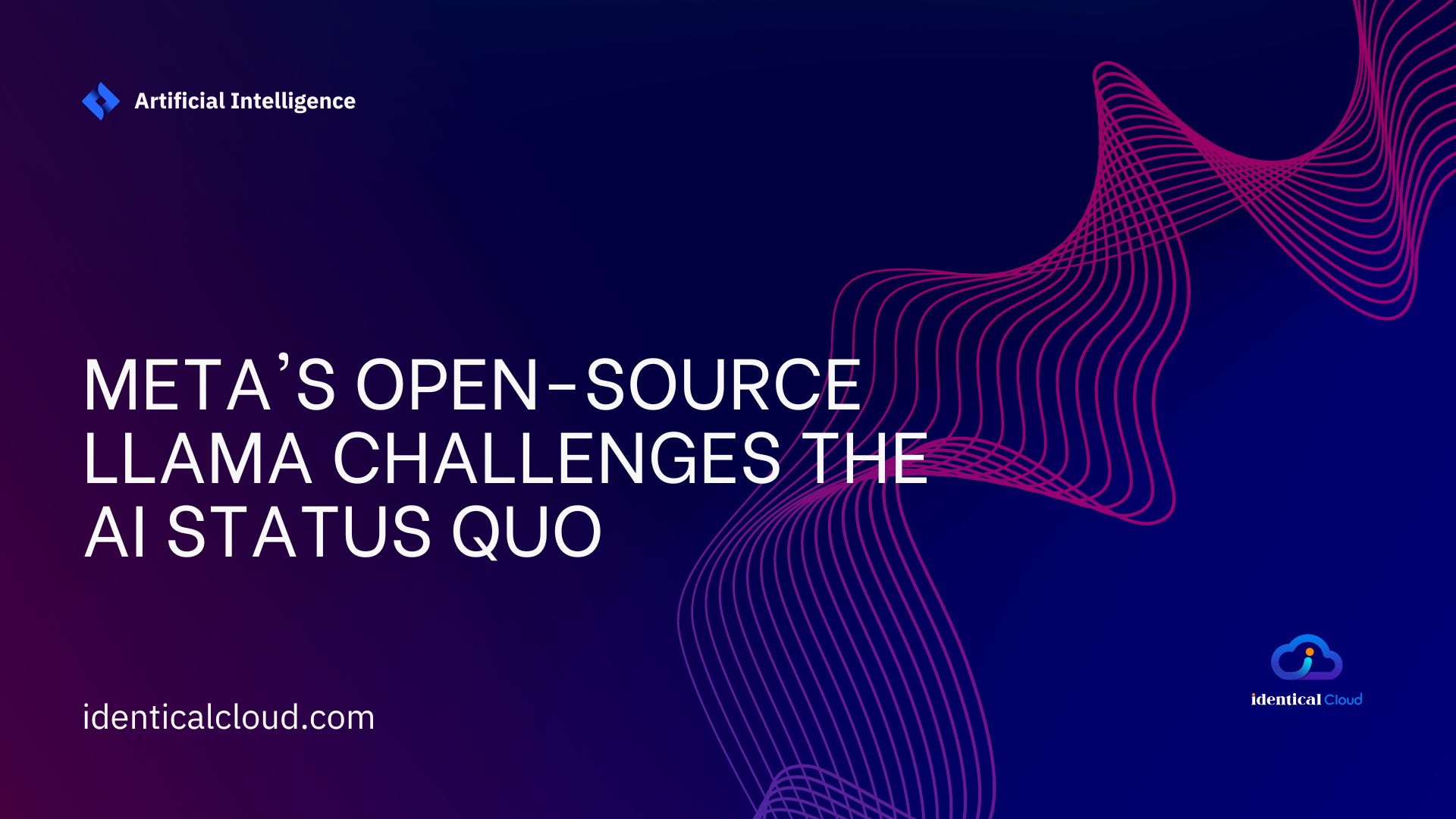
Meta’s open-source Llama challenges the AI status quo
Meta’s open-source Llama challenges the AI status quo
Artificial intelligence (AI) has witnessed significant advancements, transforming the way we interact with technology. As AI continues to shape our lives, companies are actively exploring innovative ways to democratize AI and make it accessible to all. Meta, formerly known as Facebook, has taken a significant step in this direction with the introduction of their open-source AI model called Llama.
In this blog, we’ll explore how Meta’s Llama challenges the AI status quo and its potential implications for the AI community.
What is Meta’s Llama?
Llama is a significant departure from the traditional approach to AI development. In the past, AI development has been dominated by large, closed-source platforms that are difficult to use and expensive to maintain. Llama is designed to be more accessible and affordable, and it is already being used by a number of developers to build AI applications.
Llama’s open-source nature is also a significant departure from the status quo. In the past, AI platforms have been proprietary, which has made it difficult for developers to share code and collaborate on projects. Llama’s open-source nature makes it easier for developers to share code and collaborate, which is likely to accelerate the development of AI applications.
Llama is still under development, but it has the potential to shake up the AI status quo. Llama’s lightweight, modular, and scalable architecture makes it a good fit for a wide range of AI applications. Llama’s open-source nature makes it more accessible and affordable, and it is likely to accelerate the development of AI applications.
How Llama challenges the AI status quo
Llama challenges the AI status quo in a number of ways:
- It is open-source. This makes it more accessible and affordable for developers, and it also allows developers to share code and collaborate on projects.
- It is lightweight and modular. This makes it easier to use and deploy, and it also makes it more scalable.
- It is designed for a wide range of AI applications. This makes it a more versatile platform than some of the other AI platforms that are currently available.
The impact of Llama
Llama is still under development, but it has the potential to have a significant impact on the AI landscape. It is possible that Llama will become the de facto standard for AI development, and it is also possible that it will lead to the development of new and innovative AI applications.
Only time will tell what the ultimate impact of Llama will be, but it is clear that it is a platform that has the potential to change the way that AI is developed and used.
Challenging the AI Status Quo
- Open-Source Accessibility: Historically, cutting-edge AI models were closely guarded by tech giants, limiting access to advanced AI capabilities. With Llama being open-source, Meta is challenging this status quo by allowing developers, researchers, and enthusiasts to freely access and use the model. This move encourages collaboration and empowers a broader community to contribute and build upon Llama’s capabilities.
- Breakthroughs in NLP: Natural language processing has been a challenging domain in AI. By introducing Llama, Meta has made significant strides in NLP, showcasing the model’s ability to understand context, nuances, and intent in human language. This breakthrough holds promise for enhancing chatbots, virtual assistants, sentiment analysis, and language translation systems.
- Customizability and Flexibility: Llama’s open-source nature enables developers to customize and fine-tune the model according to their specific use cases and data. This level of flexibility fosters creativity and opens up possibilities for niche applications in industries such as healthcare, finance, and customer service.
- Advancement in Multilingual AI: Llama has demonstrated proficiency in handling multiple languages, breaking barriers for AI adoption across diverse linguistic regions. By supporting various languages, the model can bridge communication gaps and foster a more inclusive AI ecosystem.
- Potential for Democratization: AI’s democratization has been a long-standing goal in the tech industry. Meta’s decision to open-source Llama represents a step towards this vision. As more developers and organizations integrate Llama into their applications, it has the potential to level the playing field and make AI more accessible to businesses of all sizes.
Implications for the AI Community
- Research Advancements: Llama’s open-source availability encourages researchers to explore novel techniques, fine-tune the model, and make further improvements. The AI community can collectively advance the state of the art in NLP and other related fields, benefiting the industry as a whole.
- Innovation and New Applications: With Llama’s customizability, developers can experiment with new AI-powered applications that were previously unfeasible. The model’s potential to understand context and intent opens doors to more interactive and human-like AI systems.
- Competition and Collaboration: As Llama gains traction, it may inspire other tech companies and research institutions to share their AI breakthroughs openly. This could lead to healthy competition and collaborative efforts to accelerate AI advancements.
Llama is a significant new player in the AI space, and it has the potential to challenge the status quo. Llama’s open-source nature, lightweight architecture, and modular design make it a versatile and accessible platform that is well-suited for a wide range of AI applications. It is still too early to say what the ultimate impact of Llama will be, but it is clear that it is a platform that has the potential to change the way that AI is developed and used.








